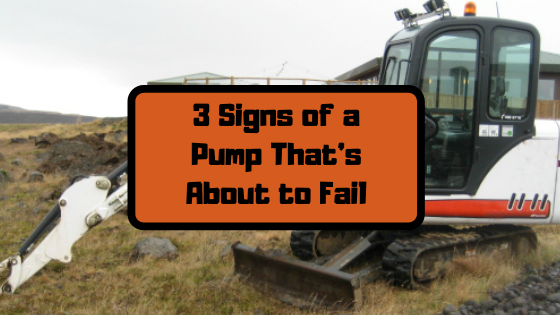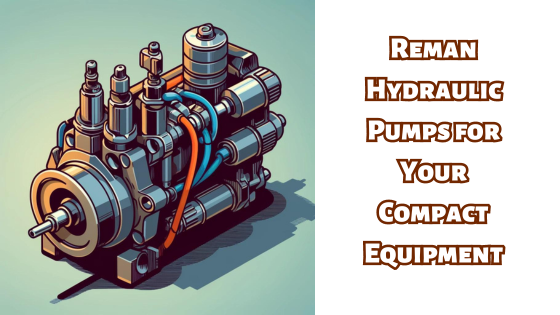3 Signs of a Pump That's About to Fail
Apr 12th 2020
Do you know the signs of impending pump failure?

The pump is the heart of your hydraulic system, whether that system is on a small compact SSL or a massive hydraulic shovel. When that pump finally gives out, your machine does, also. Here are three key signs of impending pump failure to be on the lookout for!
Noise
One of the most common signs of impending pump failure is for it to start making excessive noise. In fact, when ball bearings or roller bearings have reached the end of their lifespan, you can expect to hear a significant amount of noise (along with vibration). When a bearing finally fails and is not replaced, it can do serious damage if you keep trying to use the pump. Banging and popping noises, in particular, are usually the result of aeration (air trapped within the hydraulic fluid) or cavitation.
If you ignore new or unusual noises coming from your hydraulic pump. it will lead to more damage over time.
Sluggishness
Is your machine sluggish? Is it taking longer to complete work cycles than it used to? Does it just not react to control like it used to? These symptoms point to a loss of flow from your hydraulic pump, which is a natural result of a pump reaching the end of its useful life. As the internal components begin to wear, there will be an increase in internal losses within the pump. Those internal losses mean the pump can't produce the same output it once did. That loss of output, in turn, will affect every system that depends on the pump.
If your machine has suddenly become sluggish, you may have a worn out pump.
Overheating
Another sign of impending pump failure is overheating, and if you ignore an overheating pump it will lead to other problems. An increase in temperature is often tied to clogged hydraulic filters or a dirty heat exchanger. Also, overheating can lead to damaged seals and leaks, which result in their own set of problems. Overheating is also caused by either cavitation or aeration, both of which can lead to internal pump damage that is expensive to repair (assuming the damage is repairable).
An overheating pump is never a good sign!
Conclusion
If your pump is showing any of these signs -- noise, sluggishness, or overheating -- it might be a good time to think about getting it replaced. Here at Final Drive Parts, we offer both new and rebuilt hydraulic pumps for many different machines. Contact our sales team today to find out what your options are!







